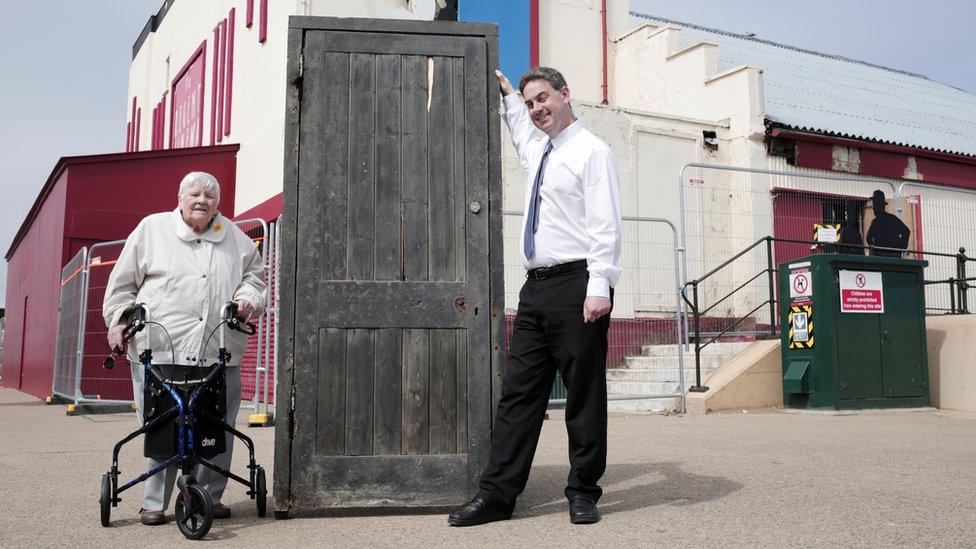Can Redcar reclaim its seaside resort glory days?
- Published
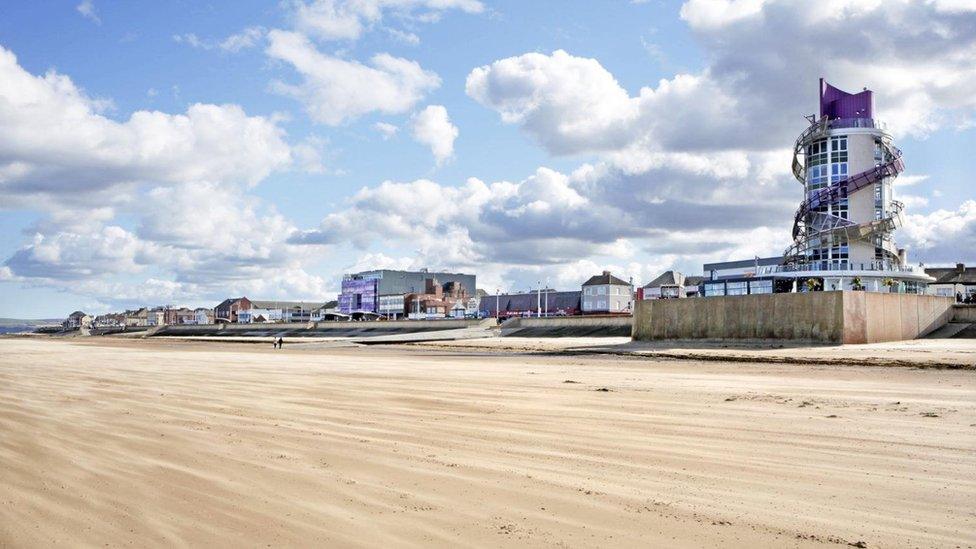
Redcar is attempting to regenerate itself after a decline from its seaside resort heydays
Redcar was once a bustling seaside resort on the North East Coast. With efforts under way to regenerate the town, the BBC went to see if it really could be restored to its glory days.
For Jean and David Ransom, it was rock and roll at the Jazz Club.
"In the '60s and '70s, it was really busy," Jean says, before her husbands rolls off a list of the great and good who performed in the town.
"Spencer Davis, The Who, The Bee Gees, Rod Stewart, Long John Baldry and the Hoochie Coochie Men, we had all the top bands," David says, adding: "It was bang on."
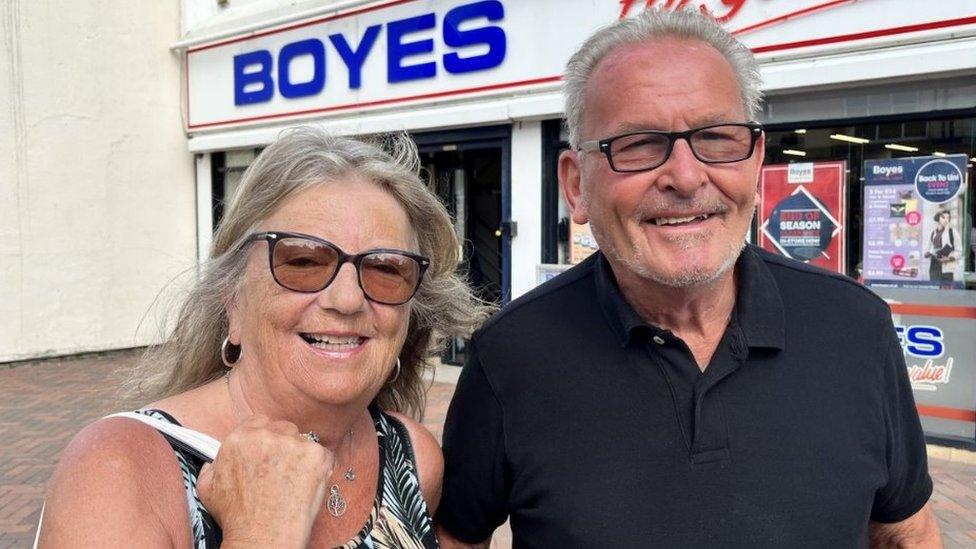
Jean and David Ransom remember Redcar for its rock and roll scene
For local historian Paul Menzies, Redcar's heyday was characterised by a packed seafront teeming with thousands of day trippers and holidaymakers.
"I just see it full of people, deck chairs, donkey rides," he recalls, as he sits on the terrace of the beachside Regent Cinema.
"Children running around, splashing in the waves, parents coming back with fish and chips at lunchtime, it was our summer holiday," he says wistfully.
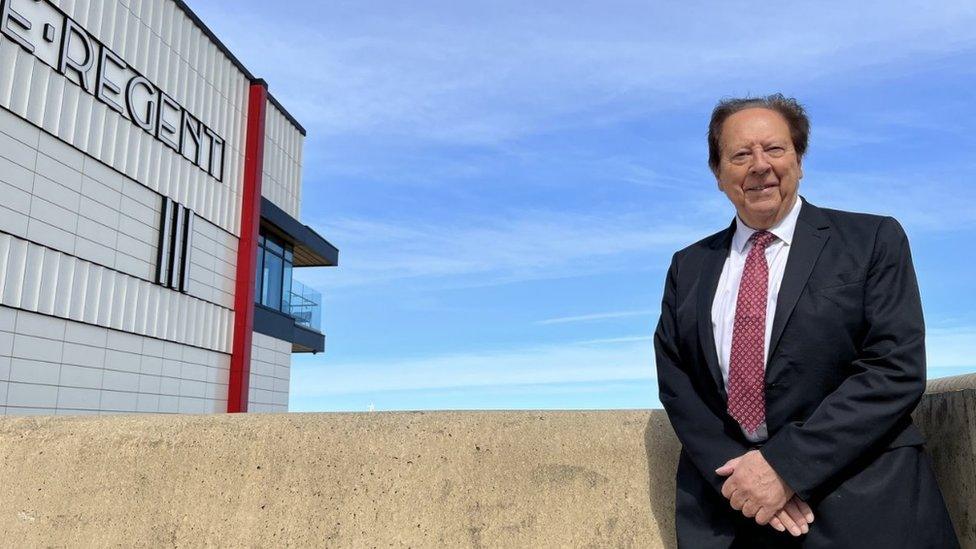
Historian Paul Menzies remembers Redcar for its beach and fish and chips
Redcar was once a thriving seaside resort before the nationwide decline of coastal tourism towns began with more Britons holidaying abroad, external.
But while other towns have found ways to reinvent themselves to keep the visitors coming, that hasn't really happened here.
"It used to be good but it's rubbish now," as one local put it to me, rather more bluntly.
But amid the pervading sense of nostalgia and gloom, plans are under way to resurrect Redcar's fortunes.
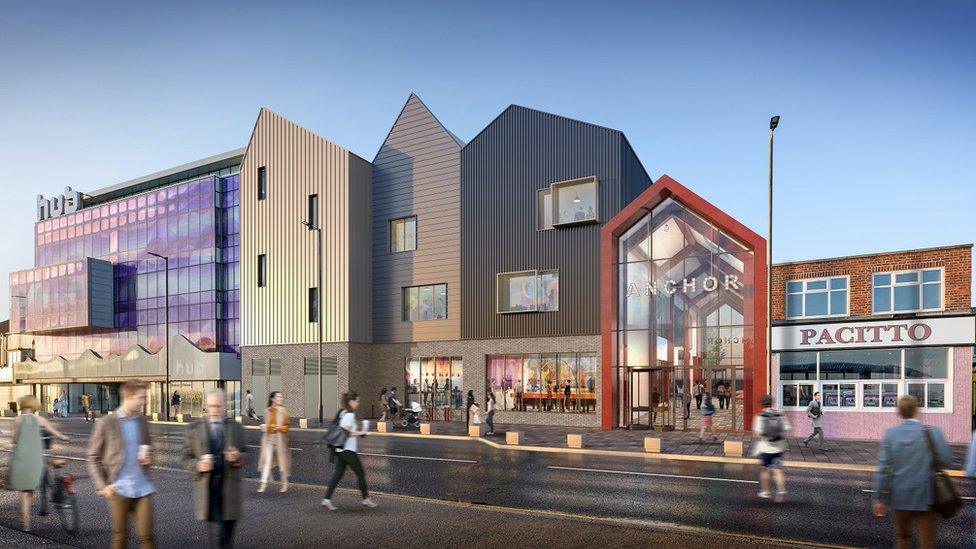
Plans are afoot to replace derelict buildings on the seafront with new attractions
The town has been awarded money from the government to create new attractions and generally smarten the place up.
The local MP, Conservative Jacob Young, says the funds are already making a big difference.
"We've got £25m from government to invest in Redcar and we are doing that already," he declares.
As evidence of progress, he highlights the rebuilt Regent Cinema, a newly opened adventure golf course and a water and beach sports activity centre which could open later this year.
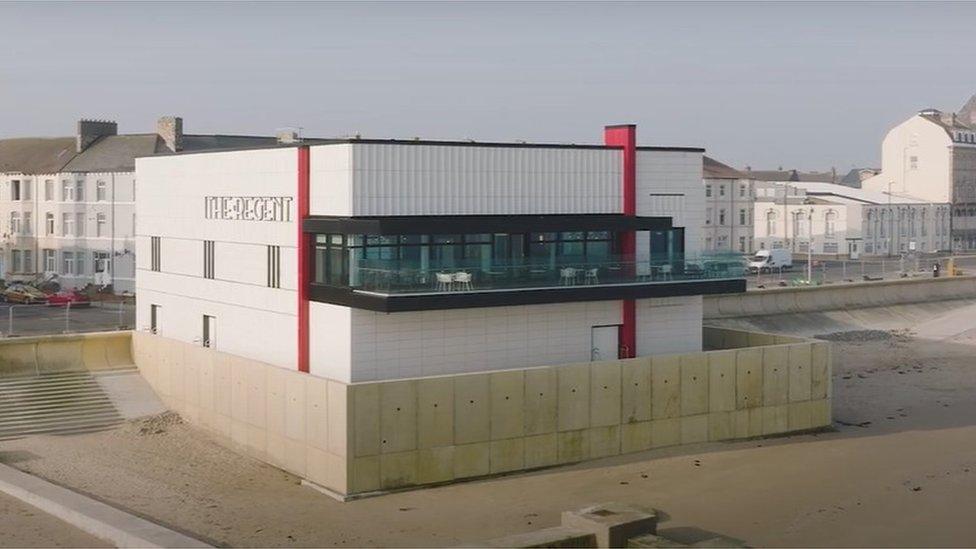
The new Regent cinema opened in October
"Right through Redcar town centre we are improving, whether that's Redcar train station, the gateway for tourism in our town, the high street or here on the esplanade," he says, shielding his eyes from the summer sun.
"Right through the heart of the town we are improving it and culture and tourism are at the heart of that," he adds.
Labour's prospective parliamentary candidate - and the town's former MP - Anna Turley, has backed the plans to create new attractions.
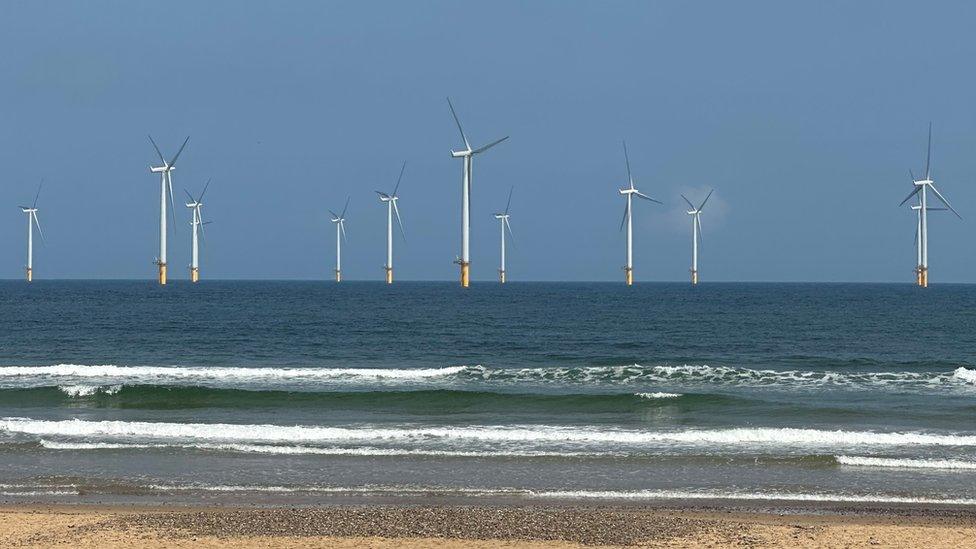
Redcar has expansive beaches
But she says more need to be done to improve the local economy in Redcar and the surrounding area if lasting change is to be achieved.
"We want people in Eston, Grangetown and South Bank to be able to come and enjoy Redcar, to be able to spend their money on their families, buy their fish and chips, spend money in the local shops," she says.
"But they can't do that if inflation is through the roof and the local economy is struggling."

Catchphrase connection
It's not exactly one for the kids, but Redcar was the inspiration for a catchphrase known throughout the land some 40 odd years ago.
The Generation Game was one of the most popular shows on Saturday night TV in the 1970s and early '80s.
When Larry Grayson replaced Bruce Forsyth as host, Brucie's "Nice to see you, to see you nice" made way for Larry's rather more enigmatic "Shut that door!".
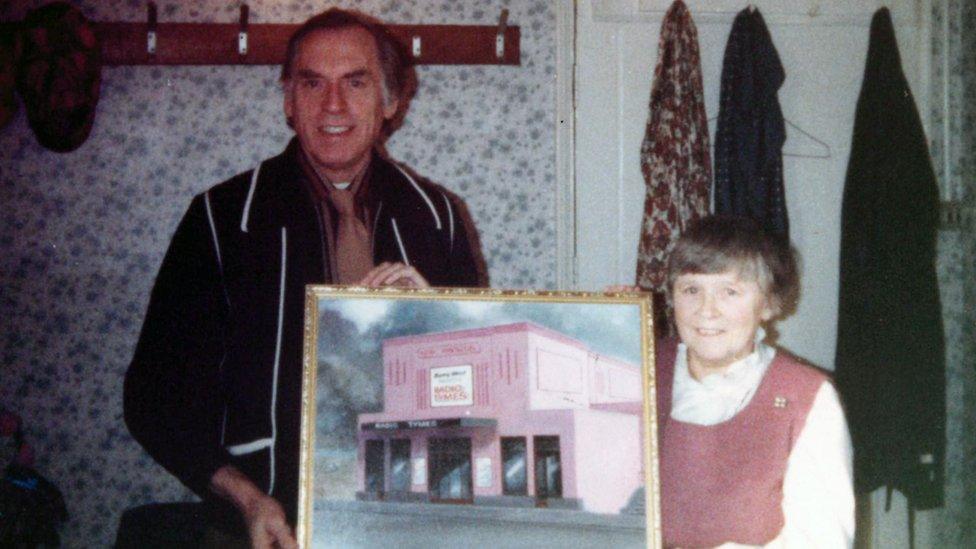
Larry Grayson came up with his "Shut that door" catchphrase at Redcar's Pavilion Theatre
The unusual catchphrase was coined at the Pavilion Theatre, which later become The Regent Cinema, in the early 1950s, when Grayson performed as Billy Breen.
Legend has it a stage door kept blowing open, letting in the cold North Sea wind.
Either Grayson, or a woman in the audience, depending on which account you believe, repeatedly shouted "shut that door" throughout the performance.
The phrase stuck - and decades later the showbiz star was urging 20 million viewers to "shut that door!" on BBC One on a Saturday night.

Of course, there have been attempts to regenerate Redcar before.
Black Slab, a retro records and clothes shop, is part of a cultural quarter created after the steelworks closed.
I asked owner Mark to use one word to sum up each of the previous four decades in Redcar.
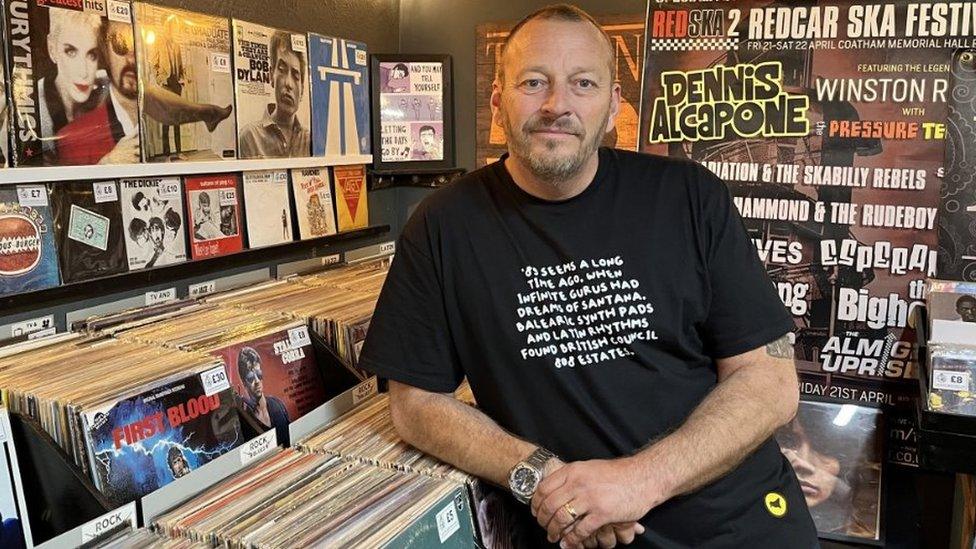
Black Slab owner Mark says Redcar has had a turbulent time
The 1970s? "Sunny."
The '80s? "Busy."
The '90s? "Decline."
The 2000s? "Sterile."
Black Slab opened in the 2010s - 2016 to be precise.
"I wanted to give the town a kick up the backside and prove a point that we are better than people thought we were," Mark says.
When it comes to reviving a town's fortunes, he says, it's often harder to convince locals that things are changing for the better than it is to impress visitors.
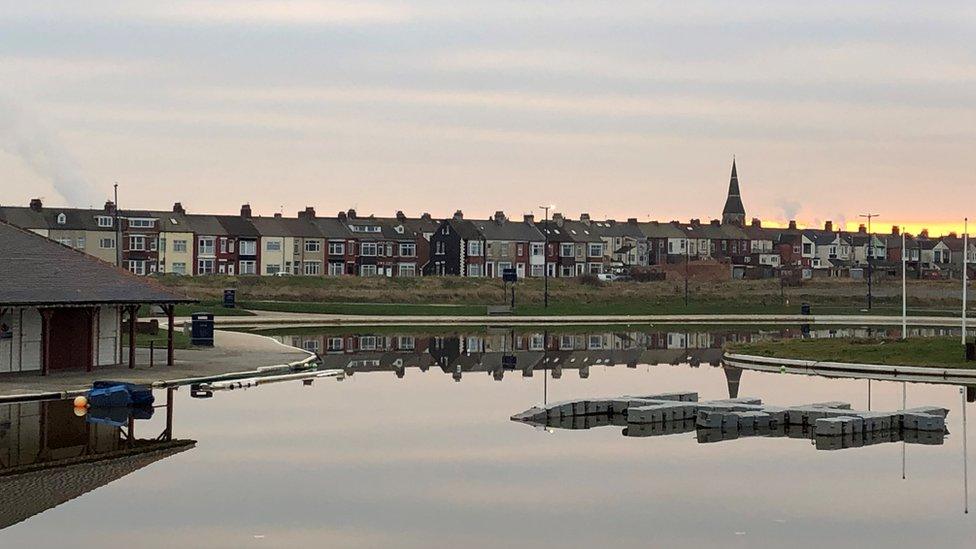
New attractions have been built near Redcar's boating lake
"A lot of the time its the people from the town that slate it the most," he says, before adding: "But that's the same all over the country."
So is there a sense that a vibe is developing in Redcar?
New eateries and cafes have opened up, as have arts and crafts shops.
One of those is The Northern Potter, where Daisy Fawcett makes and sells ceramics themed around local iconography.
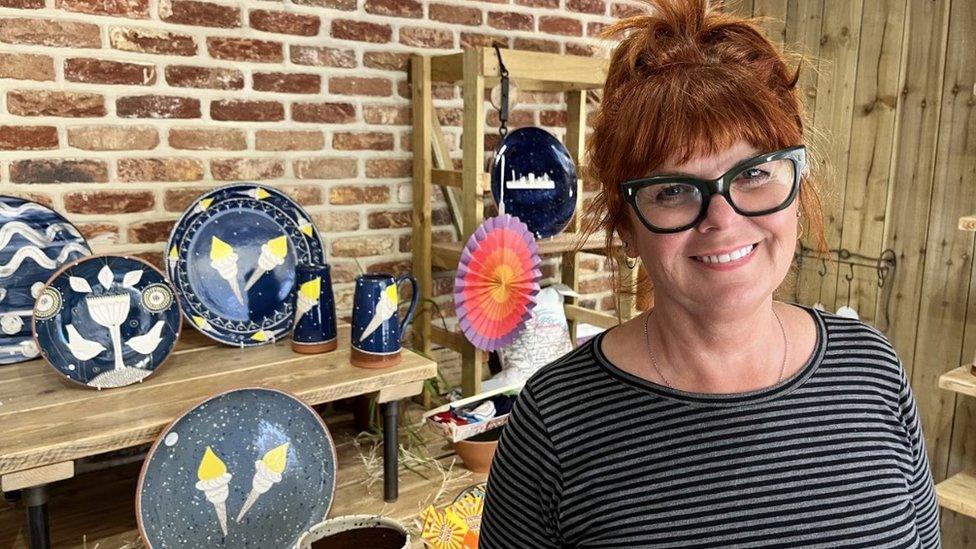
Daisy Fawcett runs The Northern Potter
In her seafront shop, surrounded by vases depicting the steel works and plates embossed with Redcar's famous lemon top ice cream, she considers the prospects for her town.
"If you look at lots of seaside places like Margate or Hastings, when artists start moving in it seems like the whole economy lifts," she says.
"I meet lots of people in the shop who are moving here, from Leeds, Braford - even Kent," she adds.
In the town centre, there are still people who are positive about Redcar's future.
Jackie tells me how she comes often with her friends and family for fish and chips, Em tells me how much she loves the new developments on the seafront.
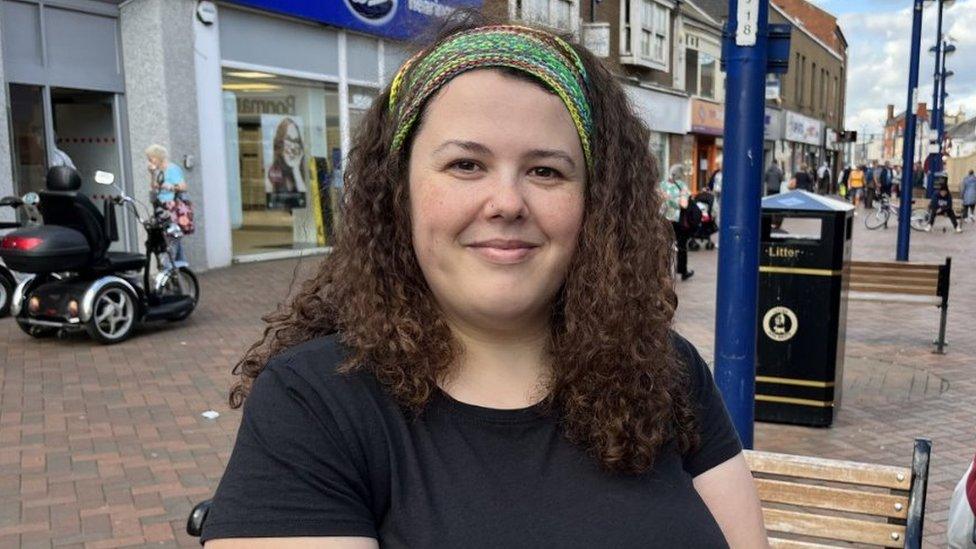
Em told the BBC she enjoys Redcar for its seafront
So will this latest attempt to regenerate Redcar really revive its fortunes and restore it to its glory days of the decades gone by?
Back at Black Slab, Mark says that if the politicians, economic experts and officials want success, they need to listen to the people who are trying to change the town every day.
"I'm a bit sceptical about the corporate people coming up with ideas, in my opinion they are not really ideas people," he says.
"I would love them to approach the creative people in the town who have good ideas.
"See what they think and take them on board."

Follow BBC North East & Cumbria on Twitter, external, Facebook, external and Instagram, external. Send your story ideas to northeastandcumbria@bbc.co.uk, external
Related topics
- Published3 February 2023
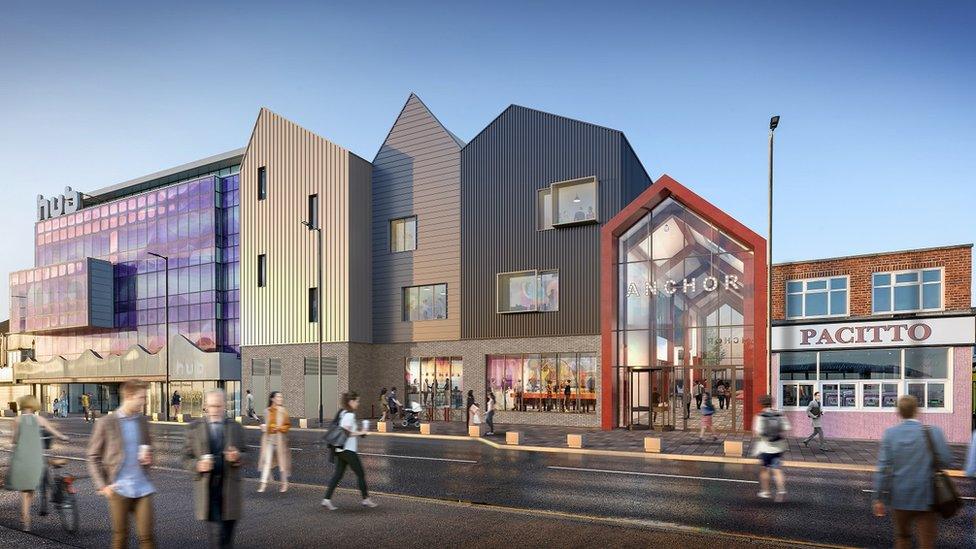
- Published17 October 2022
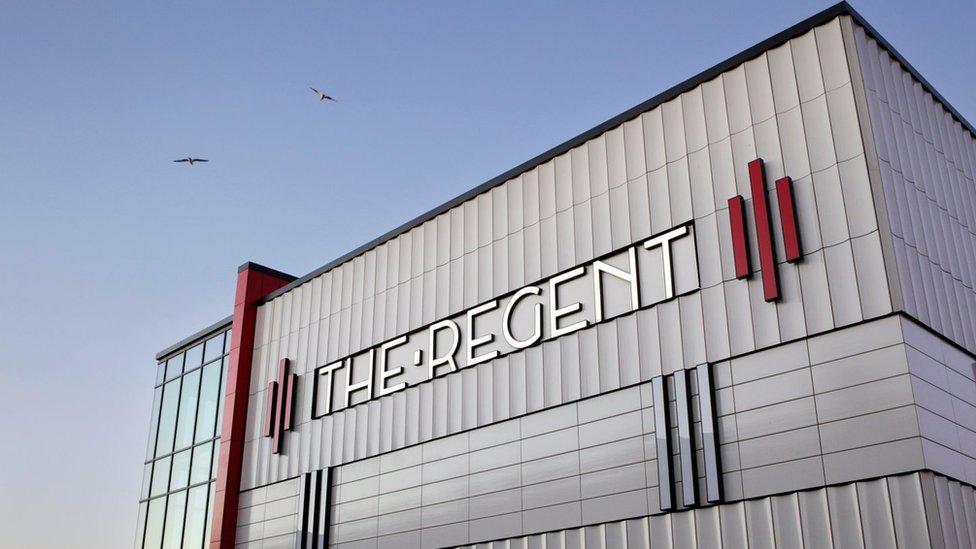
- Published12 March 2019
